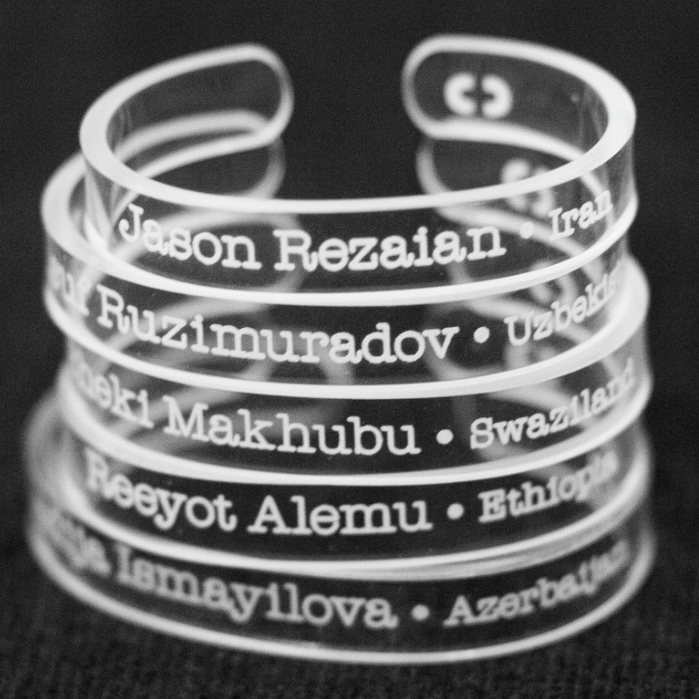Press Uncuffed: Students fight for the release of imprisoned journalists
Yesterday's World Press Freedom Day marked the launch of Press Uncuffed, a campaign put together by University of Maryland students to help fight for the release of the 221 journalists imprisoned around the world.


By NICOLA McCASKILL
“If a journalist somewhere still wears a cuff, so will we.” That’s the promise made by Press Uncuffed, a campaign launched by University of Maryland journalism students to free imprisoned journalists around the world.
The last three years have been some of the most dangerous on record for journalists in many parts of the globe, with 221 reporters currently imprisoned and already 21 deaths in 2015. In lieu of these numbers and yesterday’s World Press Freedom Day, Press Uncuffed have begun selling bracelets with proceeds going to the Committee to Protect Journalists (CPJ), a non-profit organisation fighting to protect press freedom worldwide.
The American initiative started when Pulitzer-Prize winning Washington Post reporter and University of Maryland Professor Dana Priest set a research project for her journalism class. Her students were to research an imprisoned journalist and report on each of their stories. Australian ex-pat and now University of Maryland graduate Lejla Sarcevic said the research project really changed her view on the state of the journalism throughout the world. “The journalists imprisoned around the world were reporting on issues in their own countries and communities,” she said.

“They were trying to expose wrongdoing in their own corner of the world, nothing more and nothing less. “It made me realise we're not the centre of it all and that these courageous reporters were just doing their bit.” Ms Sarcevic had been assigned the journalist Peter Greste, who was still imprisoned at the time. She contacted his family and was able to correspond with him while he was still in prison.
Prof Priest said Ms Sarcevic's report on Greste in prison was an inspiration for the class. It “was one of the key stories that I think got students so excited that they wanted to do something beyond just the class”, she said.
Prof Priest’s students started a crowd-funding campaign on Indiegogo to raise funds to make the bracelets, each bearing the name of one of nine representative journalists now in prison. Ms Sarcevic became the campaign manager, and another student spent the entire spring break building the website.

The Indiegogo campaign successfully raised more than $30,000 in one month, allowing the students to commission the bracelets and have them ready for sale by May 3, World Press Freedom Day. The translucent design of the bracelets represents both the importance of transparency of information, and the cuffs many journalists are forced to wear for reporting the truth.

Ms Sarcevic said that the recent media attention surrounding press freedom made this the perfect opportunity to start the campaign. “I got heavily involved with the campaign because I've always believed in a robust and free press, but also because the time is absolutely right for this.”
“I keep saying over and over again, we need to make this a top priority in the press and in politics – as important as, say, Ebola or climate change,” she said.
“Without a free press, we can't even cover those important issues properly.” Ms Priest said the aim of Press Uncuffed was to create a social movement around the issue of press freedom as well as raise funds to free these journalists. “It’s of course about the money, because we want to be able to help our journalists get out of dire situations, but more important than that is to create a movement of people – particularly students, but not exclusively – who will pressure these countries into releasing their journalists and loosen up on restrictions against the press,” she said. “The ultimate goal is to get these people out of jail.” **Visit pressuncuffed.org to buy a bracelet for $10..





